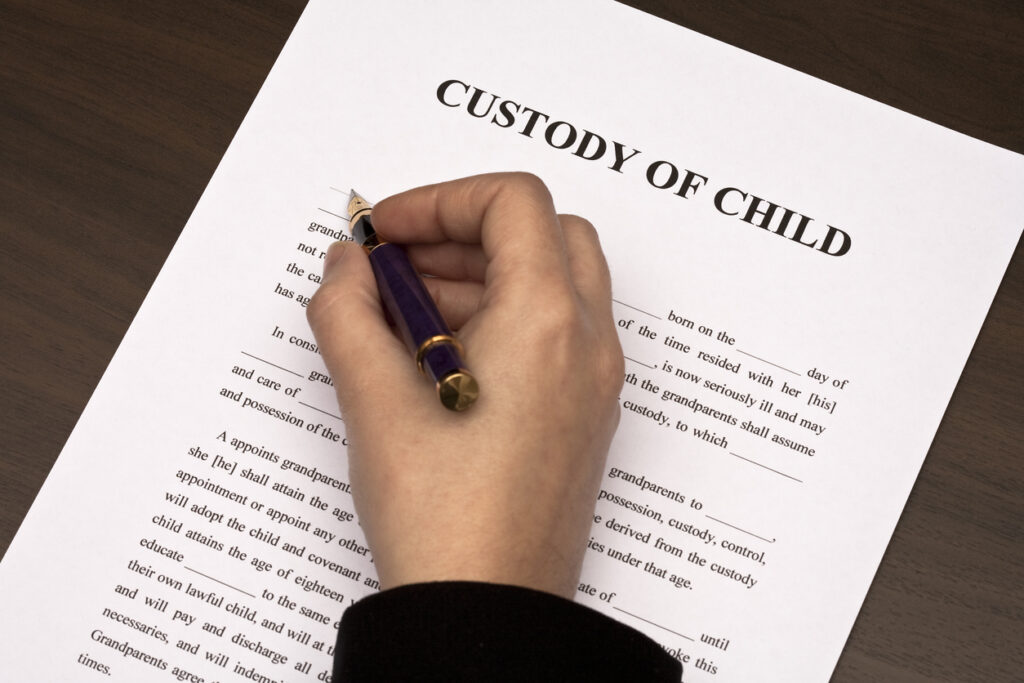What is Considered Domestic Violence in Indiana?
Indiana’s domestic violence laws are aimed at protecting the victims of violence and abuse and holding offenders accountable. However, it is relatively common for there to be false allegations of domestic abuse filed by one parent against the other. In Indiana, domestic violence is an offense or an attempt to commit an offense that involves either the use of physical force against another individual or the threat of that force with the use of a weapon. In most domestic violence cases, the offense is committed either against a family member or a household member.
Crimes that may be defined as domestic violence in Indiana include the following:
- Animal cruelty
- Battery
- Strangulation
- Criminal confinement
- Rape
- Stalking and harassment
- Sexual battery
- Intimidation
- Interference with the reporting of a crime
- Domestic battery
- Invasion of privacy
What Are the Potential Consequences for Those Accused of Domestic Abuse in IN?
Domestic violence and domestic abuse are serious crimes that could result in severe consequences for the accused. On the low end of the spectrum, a conviction under Indiana’s domestic battery laws could result in Class A misdemeanor charges that could result in up to a year in prison and fines of up to $5,000. However, if the accused has a criminal history, including prior convictions for domestic battery, the offense may be considered a Level 6 felony, which could result in over two years of imprisonment and fines of up to $10,000.
There are other far-reaching implications of being accused or convicted on domestic violence charges in Indiana. In addition to the criminal penalties, the accused may also face other lifelong consequences, including the following:
- Domestic violence charges can significantly impact child custody and visitation rights
- A conviction for domestic violence may also affect housing opportunities, as some landlords perform background checks, and domestic violence convictions could lead to a denial of rental applications or even an eviction
- Domestic violence charges can lead to job loss, the inability to obtain a new job in specific industries, and decreased chances of getting hired anywhere
- Those accused and convicted of domestic violence or domestic abuse in Indiana may have difficulty securing student loans and may lose opportunities for education
- For non-citizens of the United States, domestic violence could result in inadmissibility or even removal proceedings from the country
- Victims of domestic violence may seek protective or restraining orders against the offender, which can result in the offender being banned from entering their primary residence or contacting the victim
- Finally, domestic violence claims can have serious consequences on an individual’s reputation, freedom, and more. The stigma that surrounds domestic violence can result in discrimination, judgment, and shame
Why Are False Allegations of Abuse So Common in Family Law Cases?
Family law cases are often highly emotional and challenging for everyone involved. Spouses or parents who previously lived together may quickly develop animosity towards each other, resulting in false allegations that they want to gain the upper hand in a family law court.
It is estimated that nearly 10% of all Americans who have been accused of domestic violence were wrongfully accused. Many such false allegations involve family law disputes over child custody.
Parents understand how damaging these allegations could be against the other parent and may attempt to use such false allegations to gain the upper hand or some leverage in a family law case. Lies may also be used to hide assets so that family law judges cannot divide the estate equitably.
Even when it is possible to disprove false allegations, the lies can still have harmful and long-lasting consequences for the falsely accused.
What if You Were Falsely Accused of Domestic Abuse?
In Indiana criminal proceedings, the burden of proof rests with the prosecution, and this extends to domestic violence cases. Essentially, this means that the accused is not responsible for proving their innocence, but rather, the prosecutor must prove their guilt.
When falsely accused of domestic abuse, you must take these allegations very seriously. Regardless of guilt, it is recommended that you do everything you can to de-escalate the situation. We recommend maintaining no contact with the other party for a certain period. If it appears as though the other party intends to press legal charges of domestic abuse, you must retain professional legal counsel from an experienced men’s rights attorney.
Our Indiana law firm has years of experience representing father’s rights in a variety of family law cases, including those involving criminal charges of domestic abuse. We can help build a strong defense, attempt to clear your name, and challenge all false allegations.
Are There Laws That Protect Fathers from False Accusations of Domestic Violence?
Fathers accused of domestic abuse, whether they have been charged with abusing the mother, the children, or other household members, must immediately contact an attorney experienced in these legal matters. Even if you have done nothing wrong, the laws are not in your favor, and you must respect this.
In many domestic abuse cases, the supposed victim files protection orders against the accused, even when there is no basis for endangerment and the allegations are entirely false. Even if the allegations are later proven false at a full hearing, the fathers are still victimized by the stigma of abuse and may have their reputations damaged as a result.
A new law in Indiana, which went into effect in the summer of 2023, requires that an individual arrested for the crime of domestic violence may not be released on bail for a full 24 hours.
What Should You Do if a Protective Order Has Been Filed Against You?
Restraining orders, more commonly known as protective orders in Indiana, are frequently issued by family law courts in domestic violence disputes between parents or spouses.
While any claim of domestic violence must be proven beyond a reasonable doubt, in the meantime, the supposed victim has the right to request a protective order. Protective orders will commonly be issued if the court believes the following have been presented:
- Previous physical harm
- Forced sexual activity
- Stalking and harassment
- Threats or attempts to threaten
In most cases, protective orders last an entire month and are followed by a courtroom hearing to determine whether to extend the order. During the 30 days, the accused will have time to speak with an attorney to build a credible defense. To retain professional legal counsel, especially if you are in the middle of divorce proceedings or child custody hearings.
Contact Us to Schedule an In-depth Case Evaluation with Our Compassionate Legal Team Today
If you have been falsely accused of domestic abuse, you must seek professional legal representation from experienced attorneys familiar with these cases. Our Indiana law office has extensive experience representing men and fathers in complicated family law cases, including those whom ex-partners have falsely accused of domestic abuse.
You must understand that the laws are not on your side if you have been accused of domestic violence. Indiana’s domestic violence laws look after the supposed victims of these crimes first and foremost. Because of that, it is highly recommended that you take these charges very seriously and hire lawyers to represent your legal rights.
To learn more about our legal services and how we may assist you during this difficult time, please contact our law office to schedule an initial consultation with our legal team today.
You can contact us at 317-785-1832.












